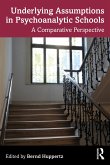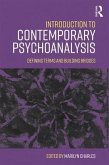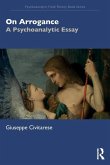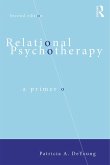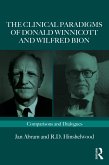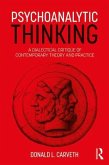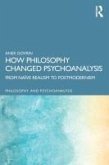This book offers a comparative study of the major schools of psychoanalysis by exploring their historical development, their differences and similarities, and the underlying assumptions made by each.
Encompassing the expertise of colleagues from different schools of psychoanalytic thought, each chapter explores a particular perspective, defining specific theoretical assumptions, theories of etiology, and implications for technique, as well as providing each author's view on the historical development of key psychoanalytic concepts.
With contributions from leading authors in the field, and covering both historical and international schools, the book provides an enlightening account that will prove essential to psychoanalytic practitioners and students of psychoanalysis and the history of medicine.
Encompassing the expertise of colleagues from different schools of psychoanalytic thought, each chapter explores a particular perspective, defining specific theoretical assumptions, theories of etiology, and implications for technique, as well as providing each author's view on the historical development of key psychoanalytic concepts.
With contributions from leading authors in the field, and covering both historical and international schools, the book provides an enlightening account that will prove essential to psychoanalytic practitioners and students of psychoanalysis and the history of medicine.
'This book offers a broad and comprehensive view of psychoanalytic ideas and practice across the globe and eloquently demonstrates the continuing development and creativity of the scientific discipline rooted in Freud's work. It offers expert coverage of the rich proliferation of psychoanalytic ideas providing an excellent introduction to the discipline and a very helpful source of reference to expert readers. It is brought together and integrated with great care and intelligence to make a clear statement about the continuing relevance of our discipline.'
Peter Fonagy is professor of Contemporary Psychoanalysis and Developmental Science, University College London
'Bernd Huppertz has put together an extraordinary volume that covers the development of psychoanalytic theory and practice from Freud's talking cure through modern relational perspectives. Each chapter is written by a renowned practitioner who describes an important innovation in theory and practice from psychoanalysis's birth to the present. A particular strength of the volume is that it traces the evolution of psychoanalysis from a 1-person to a 2- person sensibility. This makes it an invaluable volume for teaching and learning about psychoanalytic thinking.'
Peter Buirski is dean emeritus at the Graduate School of Professional Psychology, University of Denver, and co-author of Making Sense Together, 2nd Edition
'Huppertz demonstrates his masterful understanding of the study of the human mind as an intrinsically dynamic, perpetually evolving science in which fundamentals are fluid to interpretational biases, distinct cultural beliefs, and other influential circumstances. In the study of the theory and practice of psychological therapies, inclusive work such as this becomes critically imperative. The 29 distinct chapters illustrate psychoanalytic theory and create a cogent guide for the reader seeking to orient or refine the parameters of this science. Assumptions, confounding of opposition between psychoanalytic schools and diversified cultural influences, are powerless against the symphony of sincere insight given by dozens of prominent psychoanalytic professionals featured here, skillfully framed by Huppertz.'
Susan P. Sherkow, training analyst and instructor at the Berkshire Psychoanalytic Institute and supervising analyst and instructor at the New York Psychoanalytic Institute
'Huppertz has done the profession a great service by bringing together this extraordinary volume that provides clear and compelling glimpses into the underlying assumptions of many schools of psychoanalytic thought. Written by esteemed experts, this eminently readable volume captures the vitality and passion of the global psychoanalytic community. Psychoanalysis is a complex field, diverse in every way, and Huppertz conveys the richness and contemporary relevance of the field. It is an important work.'
Kerry J. Sulkowicz, president, American Psychoanalytic Association
Peter Fonagy is professor of Contemporary Psychoanalysis and Developmental Science, University College London
'Bernd Huppertz has put together an extraordinary volume that covers the development of psychoanalytic theory and practice from Freud's talking cure through modern relational perspectives. Each chapter is written by a renowned practitioner who describes an important innovation in theory and practice from psychoanalysis's birth to the present. A particular strength of the volume is that it traces the evolution of psychoanalysis from a 1-person to a 2- person sensibility. This makes it an invaluable volume for teaching and learning about psychoanalytic thinking.'
Peter Buirski is dean emeritus at the Graduate School of Professional Psychology, University of Denver, and co-author of Making Sense Together, 2nd Edition
'Huppertz demonstrates his masterful understanding of the study of the human mind as an intrinsically dynamic, perpetually evolving science in which fundamentals are fluid to interpretational biases, distinct cultural beliefs, and other influential circumstances. In the study of the theory and practice of psychological therapies, inclusive work such as this becomes critically imperative. The 29 distinct chapters illustrate psychoanalytic theory and create a cogent guide for the reader seeking to orient or refine the parameters of this science. Assumptions, confounding of opposition between psychoanalytic schools and diversified cultural influences, are powerless against the symphony of sincere insight given by dozens of prominent psychoanalytic professionals featured here, skillfully framed by Huppertz.'
Susan P. Sherkow, training analyst and instructor at the Berkshire Psychoanalytic Institute and supervising analyst and instructor at the New York Psychoanalytic Institute
'Huppertz has done the profession a great service by bringing together this extraordinary volume that provides clear and compelling glimpses into the underlying assumptions of many schools of psychoanalytic thought. Written by esteemed experts, this eminently readable volume captures the vitality and passion of the global psychoanalytic community. Psychoanalysis is a complex field, diverse in every way, and Huppertz conveys the richness and contemporary relevance of the field. It is an important work.'
Kerry J. Sulkowicz, president, American Psychoanalytic Association



